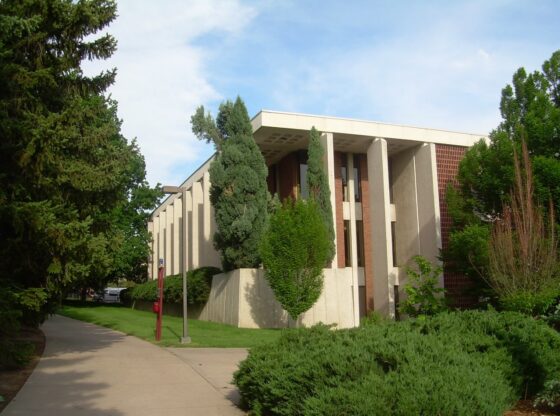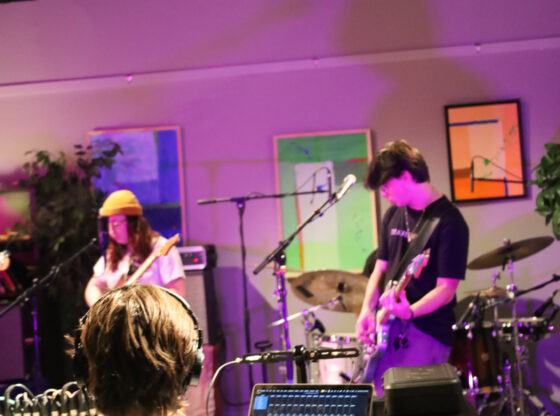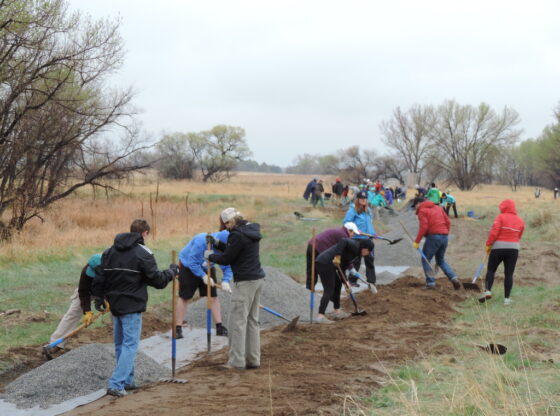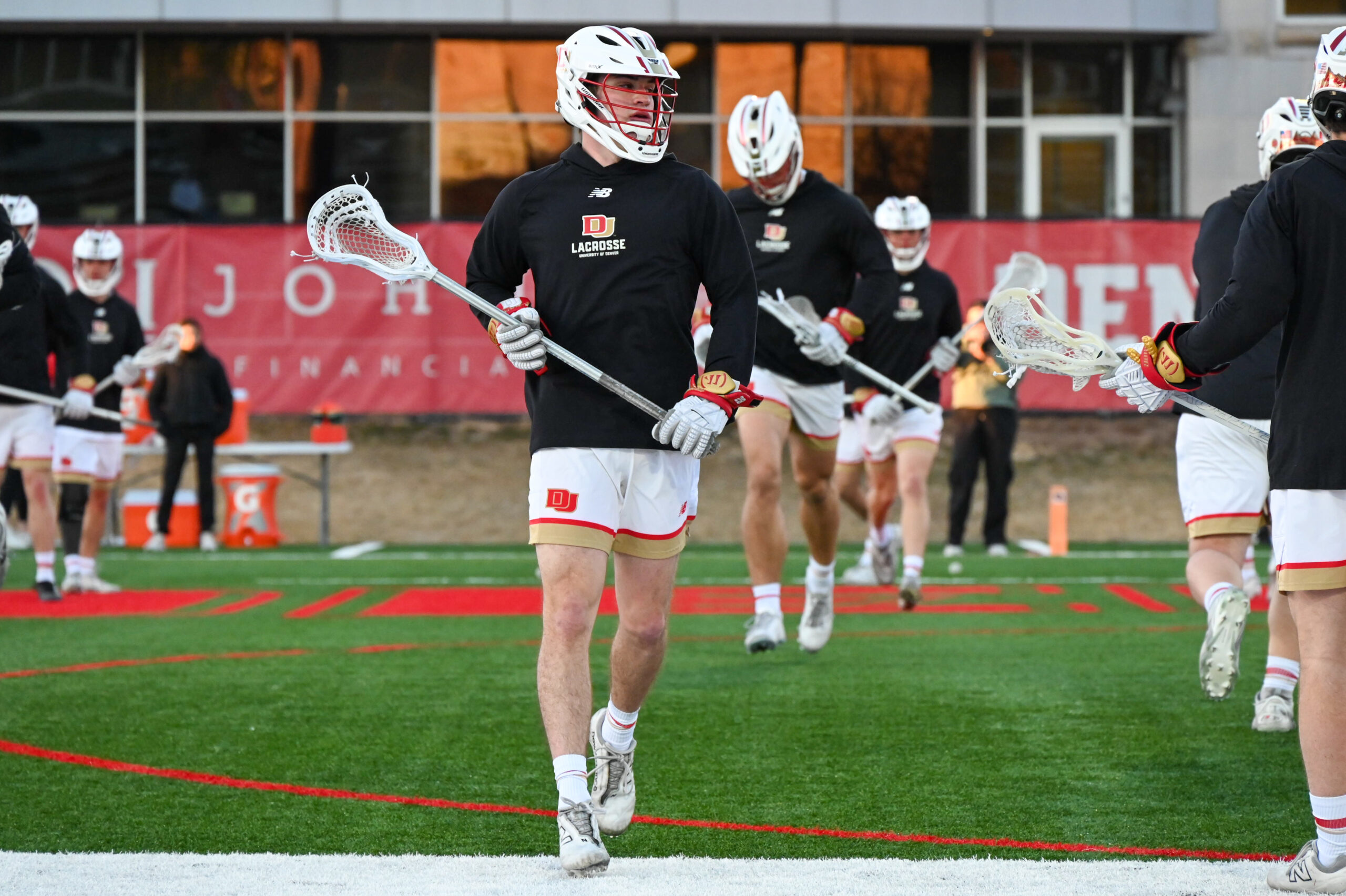[A link to video of the event can be found at the bottom of this page]
Renee Montagne traveled to an apartheid South Africa to speak to locals about their experiences. She went to Afghanistan to report on refugees, walking through streets littered with broken ceramic pieces with a scarf covering her head and face in order to speak to people in a country where women did not have any rights. Never during the experiences was Montagne scared.
But, when she stood on the ruins of a 180-foot Buddha in the Bamyan Valley of central Afghanistan, Montagne feared for her life.
The two standing Buddha sculptures were dynamited and destroyed by the Taliban in 2001
“(That was) the only time I was ever scared,” said Montagne, who is scared of heights.
Montagne was visiting DU Friday as the keynote speaker and Anvil of Freedom Award recipient. She was presented the award at the Estlow Center conference “Untold Stories: Truth and Consequences.”
The NPR Morning Edition host spoke to an audience of almost 200 people in the Cable Center about her career spent telling untold stories of diverse communities.
“My entire career more or less has been devoted to telling untold stories,” said Montagne.
She is the first professional radio journalist to be nominated and receive the award.
Her nomination resulted from her reports on homelessness in California and the problem with race relations in Jena, La., where white and black high school students got involved in a fight.
Montagne said her early work as a freelance journalist prepared her for finding and telling these stories. As freelancer, said Montagne, “We really had to fend for ourselves. We had to find our stories and they had to be different.”
Finding the untold story is important, said Montagne, but it must be done in a considerate way.
“It is important to engage respectfully with diverse people,” said Montagne in her keynote address. “Journalism can only be about the truth; you cannot focus on the consequences.”
The day-long event included workshops on multimedia storytelling and Project Homeless Connect – which DU will host on May 9 – and featured professionals from Colorado Public Radio, the Denver Post, Rocky Mountain News and Aurora Sentinel.
Joe Nguyen, special sections editor at the Aurora Sentinel, spoke about the changing role of journalists in “Multimedia Storytelling in News and Art.”
“The more you know, the more valuable you are (as a journalist),” said Nguyen. He spoke about the new idea of “backpack journalism,” where traditional journalists are expected to carry a backpack full of cameras and video and sound recorders on top of their traditional notepads.
“Tell a story through every medium you can,” advised Nguyen to almost 30 people.
Montagne, whose radio medium allows her to tell people’s stories primarily through their own words, sees storytelling as the main purpose of her work.
“The medium is about telling stories,” said Montagne. “I treat my work as fiction almost. It is truly just a long, many chapters.”
Her advice to aspiring journalists was to approach their work in the same way. “Open your mind and be prepared for anything,” said Montagne. “Never go in thinking you know the story.”
The Estlow Center was established at DU in 2000 as a means to explore how the traditional roles of journalism are changing in a new, technological world.












